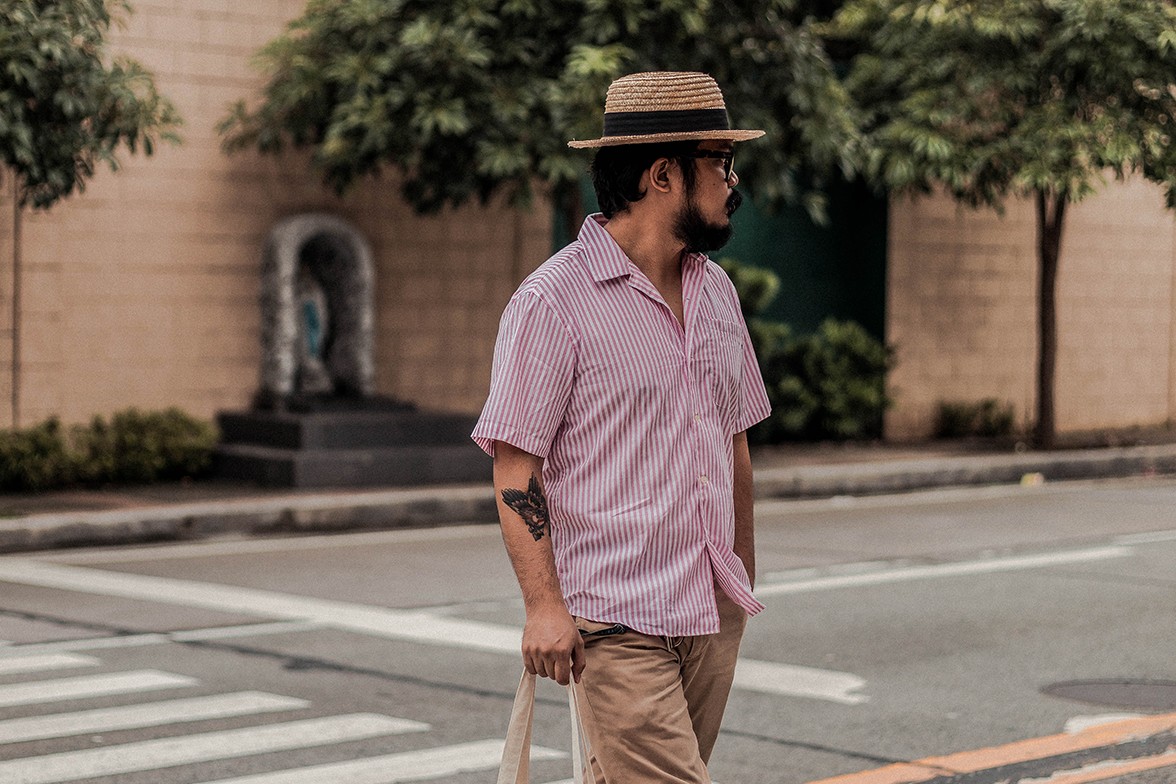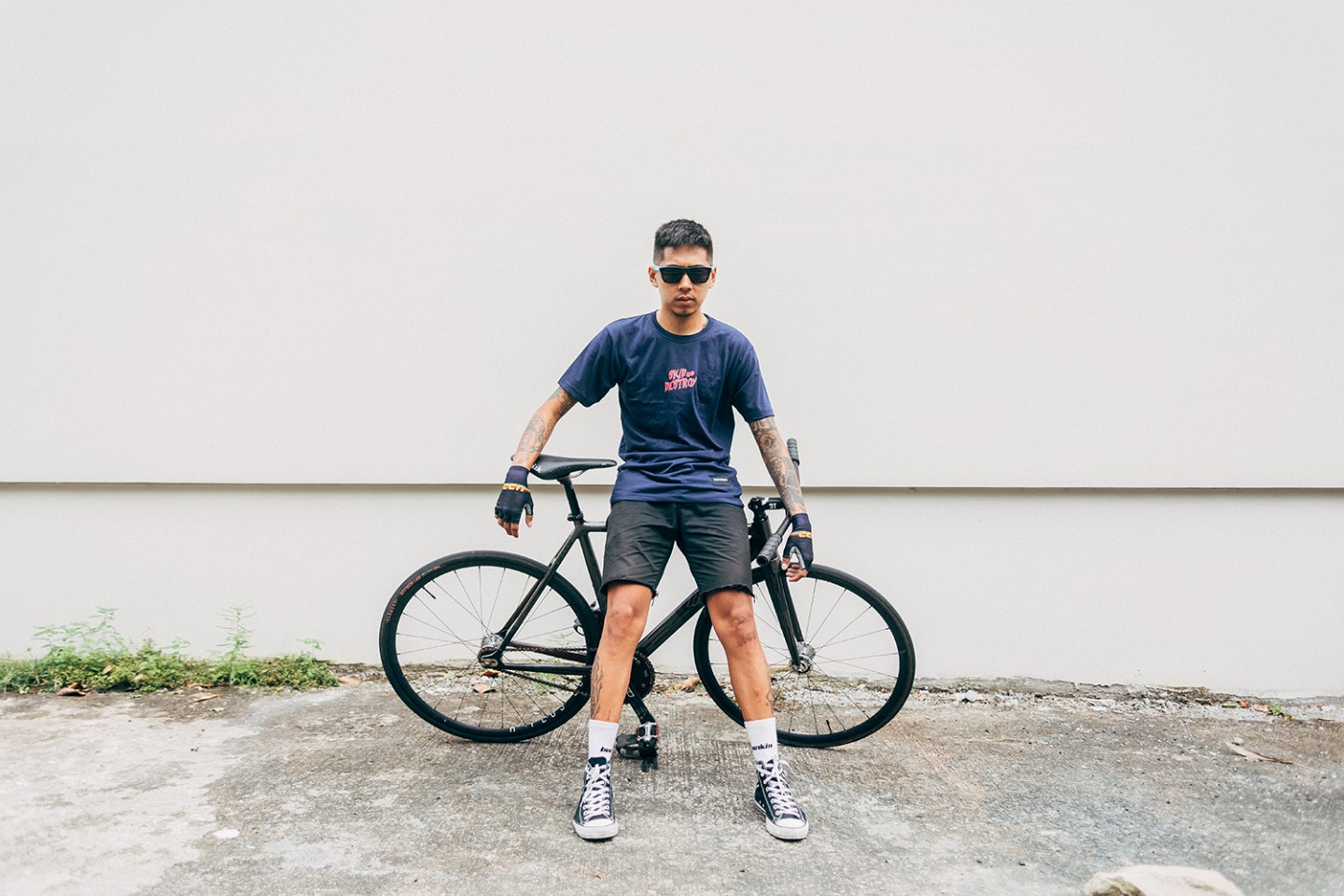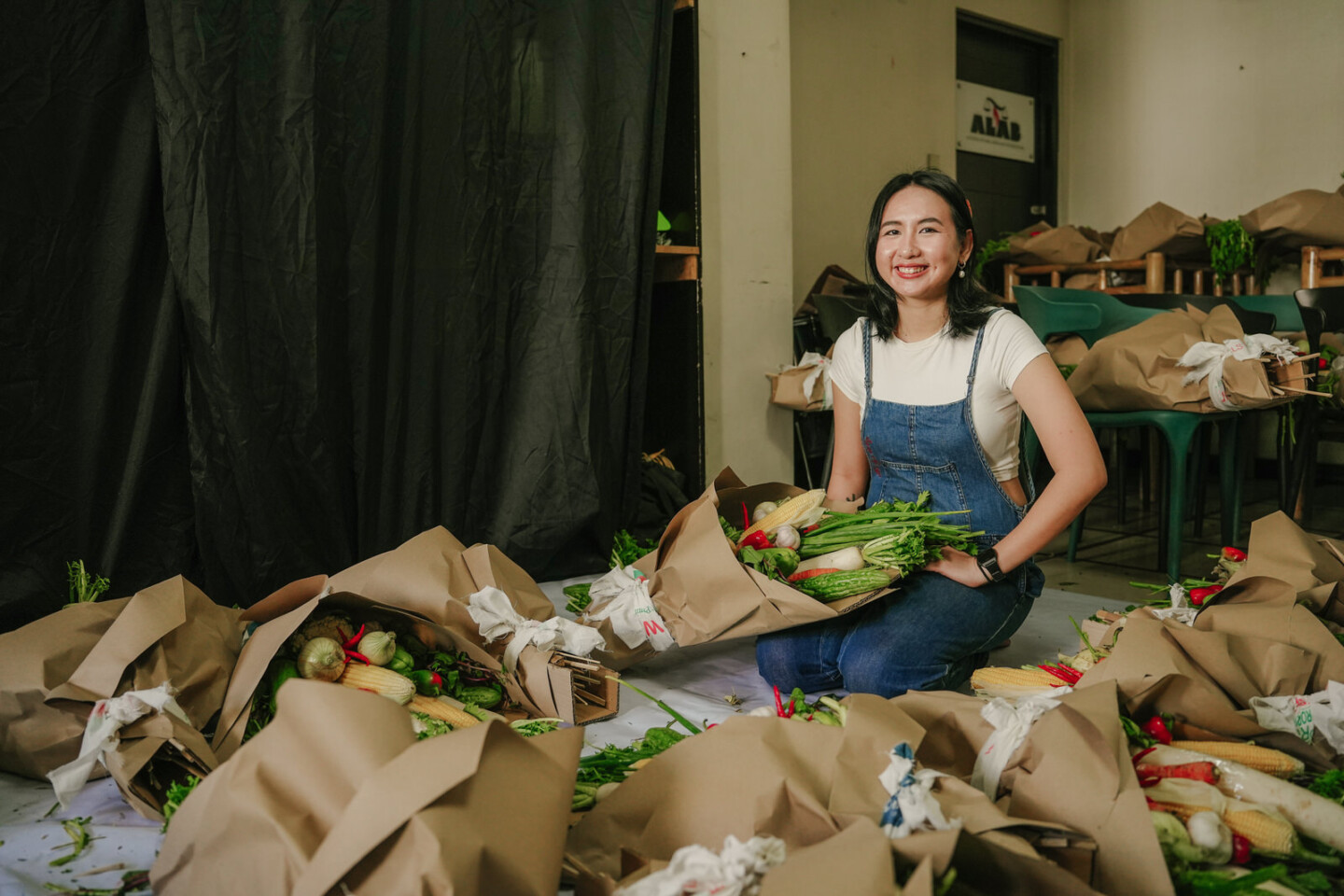
There are plenty of things the world doesn’t know about Patricia ‘Patreng’ Non. While they’re not exactly secrets, her extensive catalog of skills and hobbies include swimming, running, biking, sculpting, mountaineering, whipping up Adobong Marikina (that’s Adobo minus the soy sauce), speaking a little bit of Italian, and adoring Nora Aunor from a healthy distance (her favorite project of the superstar is the 1980 film Bona.) She used to be an art teacher at a small school in Kalibo, too.
Funnily, what initially stood out for us is her casual declaration of not succumbing to an audio streaming service. “Wala akong Spotify. Hindi ako marunong. (I don’t have a Spotify account. I don’t know how to use it),” she shares chuckling, while also talking about her dream of being a hiphop rapper.
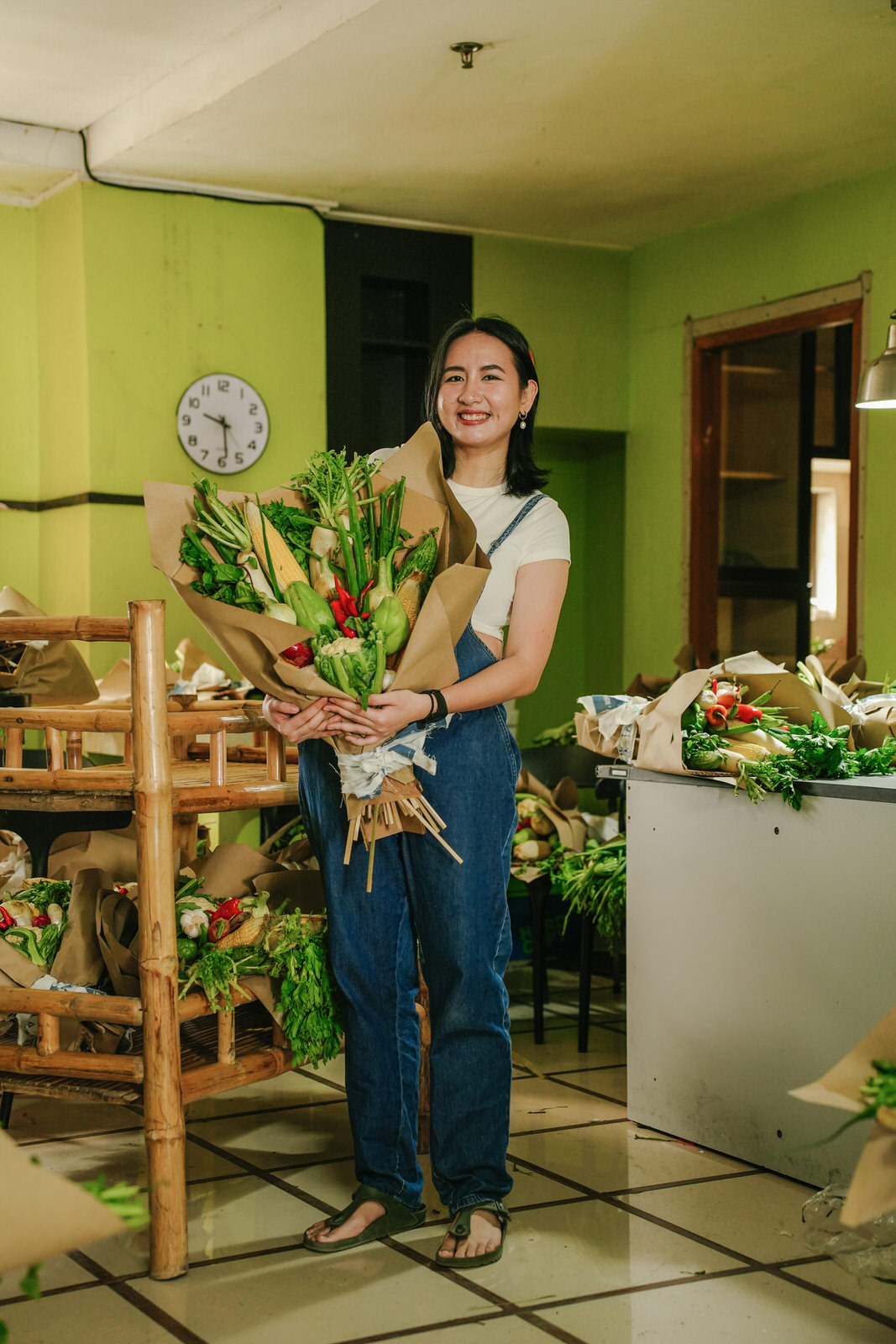
Donning a faded white shirt and sporting commute-embraced hair, Patreng speaks to us with a clear zest for life. “Pagod ako ngayon, pero masaya pa rin. On a scale of 1 to 10, 10 pa rin ang sagot ko kung gaano ako ka okay today. (I’m tired but happy. On a scale of 1 to 10, the answer to how I am is still a 10),” she says smiling confidently.
To her friends and family, she may just be another girl, but to the rest of the country, she’s the woman who started the community pantry—the face of the movement that took over villages, barangays, and cities during the height of the pandemic. The community pantry started out with her simple wooden cart filled with grocery items that Patreng had as surplus and willing to give to those in need. The principle was simple: leave it out there for people to get what they need and pay it forward.
Then it turned to a ripple effect. Most donations came from the rich and the middle class, but those who struggle financially also give what they can, no matter how simple. Contributions from corporations do come, but they also come from farmers and fishers from rural areas all over the country.
With contemplative eyes and both of her hands pressed against her seat adjacent to us, she recalls this simple gesture that’s been replicated a thousand times—6,700 to be exact, according to the Department of the Interior and Local Government. It may have officially started last April 2021, but her whole background was an integral part of the process to get there.
To no one’s surprise, it was having experienced hunger first hand that fueled Patreng into doing what she did. Similar to millions of Filipinos, her younger years is a familiar tale. “‘Yung childhood ko, mahirap siya sa aming magkakapatid. Product kami ng public school system. Nangungutang kami sa palengke, tapos tuwing sahod lang namin binabayaran. (My childhood was difficult for me and my siblings. We were all products of the public school system. Our family would purchase on credit from vendors in the market so we can eat, then we’ll only pay it off once salary arrives),” she reminisces.
At the Gulay Bouquet fundraising event that the Community Pantry PH hosted in February 2023
At a time when baseless lockdown variations existed, plenty of things were scarce, and hope was on top of the list. Patreng admits that the [community] pantry was not a solution to hunger. Her only thought at that time was there might be other people, like her, who had extra to give.
Finding a spot proved to be a challenge. She would go to different places and ask people if she could put her cart there. There were many who said no at first until she finally settled in her spot at Maginhawa. “Noong na pwesto ko na siya, umalis agad ako kasi ayaw ‘kong ma associate. At first nakaupo lang ako sa gilid tapos tinatanong ako ng mga tao kung sa akin ba daw ‘yun. Sabi ko lang ako po ang nag set up pero wala na po akong pang-refill. (When I found a spot, I immediately left because I didn’t want to be associated with it. At first, I was just sitting near the cart then passersby started asking me if I owned the cart. I just told them that I was the one who set it up first, but I didn’t have any means to refill it),” she shares.
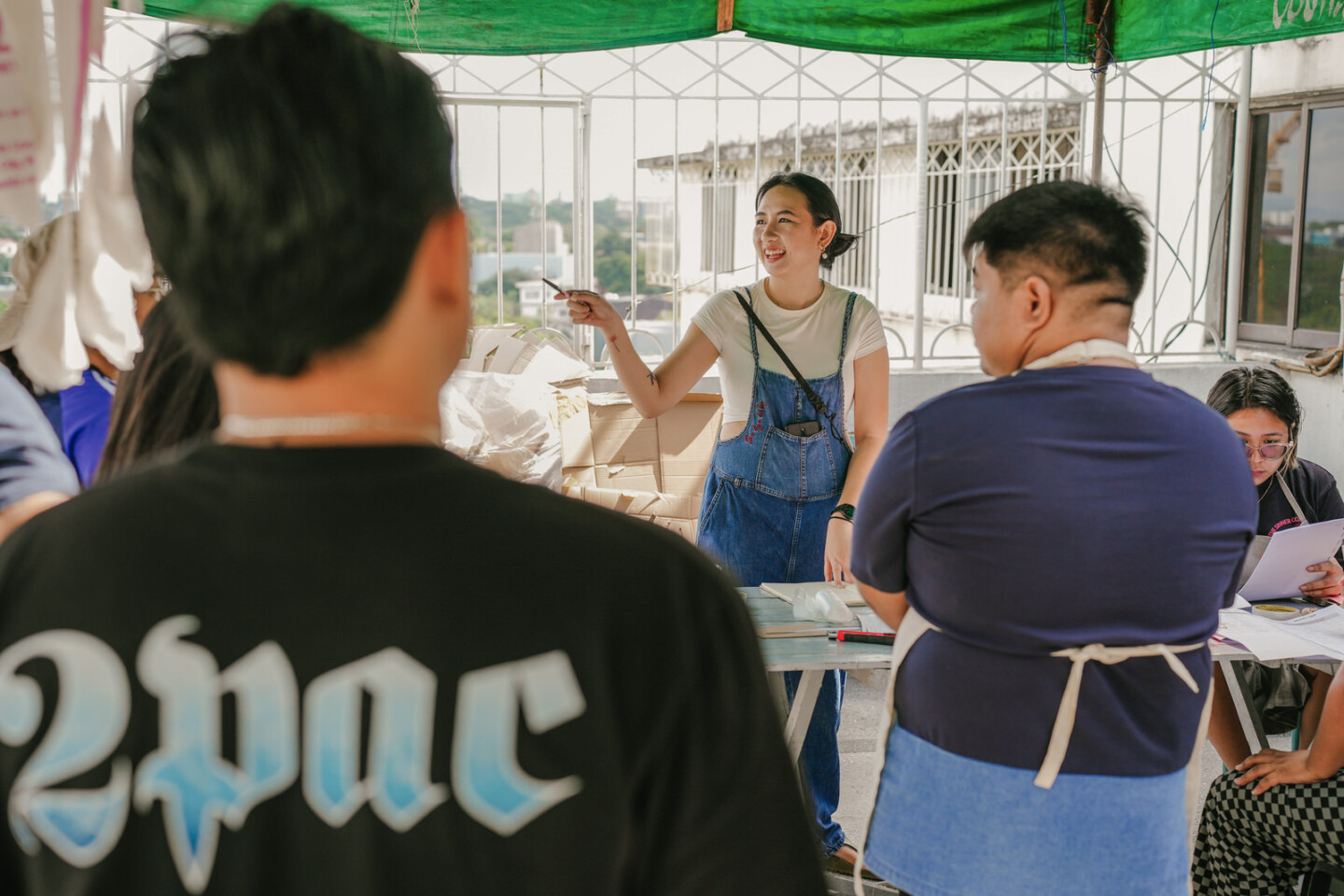
Reasonably enough, Patreng is swift to emphasize that the concept of community pantries isn’t her brainchild. Nonetheless, her effort has rightfully turned her into the country’s poster girl of the project. The community pantry was born out of a struggle to make sense of a collapsing world. And as a creative, Patreng says she strives to make an effort to honor her intentions and boundaries. So in 2021, that’s exactly what she did. “Nag start ang community pantry kasi kailangan ng mga tao. Pero bilang tao kailangan ko rin yun gawin. Act of love siya. (The community pantry started because the people needed it. But I, too, felt the need to do it. It was an act of love).”
If anything, Patreng reiterates that the community pantry slogan, “Kumuha ayon sa pangangailangan, magbigay ayon sa kakayahan” (Get according to your needs. Give according to your means) applies to us all too. In the same spirit, Patreng says she’s witnessed an influx of generous hearts throughout the Maginhawa Community pantry run. “Hindi lang kasi food ang dino-donate nung iba, eh. May mga lawyers na nag offer ng services nila for free, may volunteers din who helped with lines. Marami! (It wasn’t just food that others donated. There were also lawyers who offered their services for free. There were volunteers who helped with organizing the queues),” she exclaims.
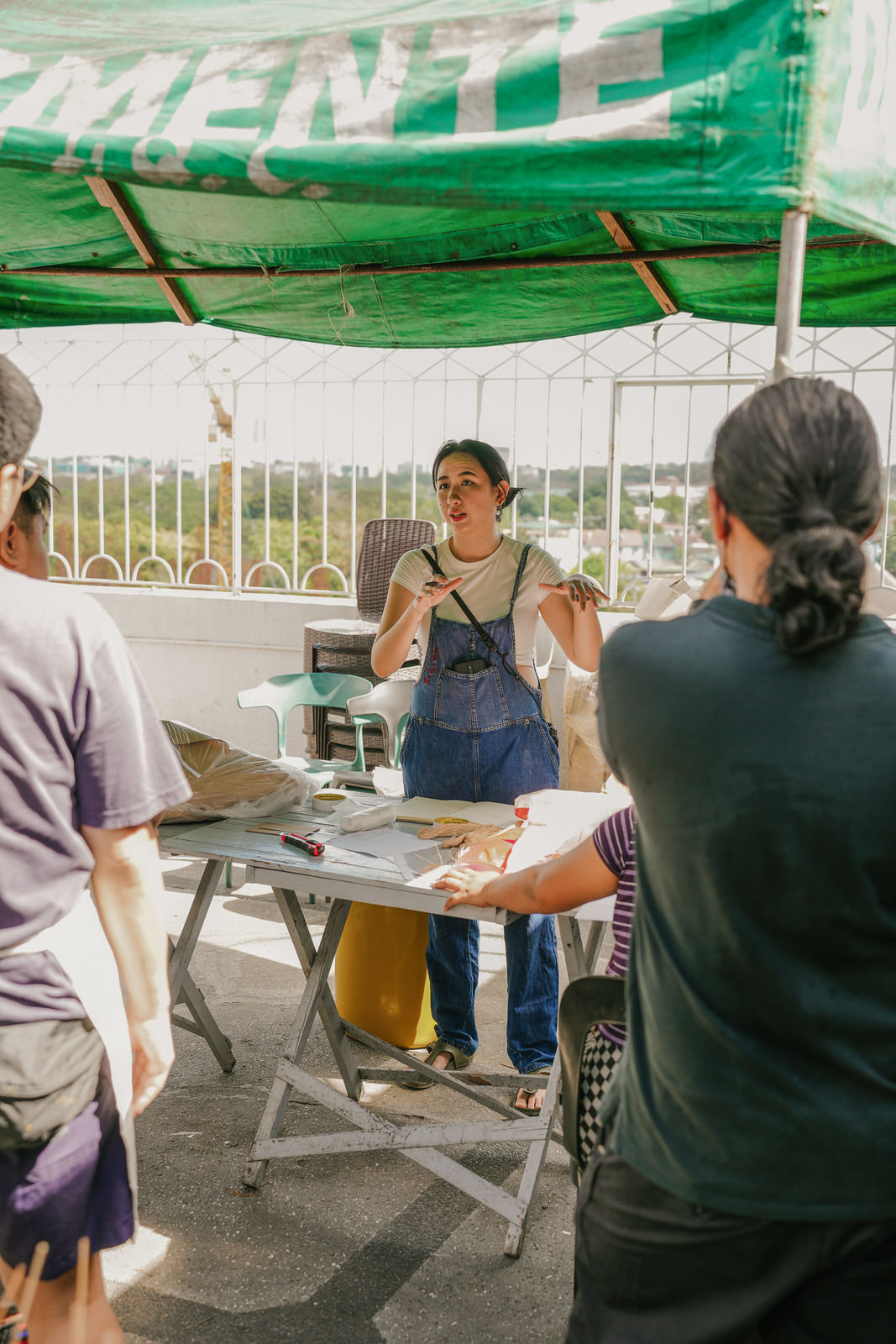
Patreng carries a torch for a number of advocacies, but the pursuit of quality living burns the brightest for her. “Dati, simple lang ang pangarap ko, eh. Ayaw ‘kong magutom. Pero over time, mas na-realize ko na pwede palang mangarap ng mas malaki. Tapos ang pangarap mo dapat di lang nakakulong sa sarili. Nangangarap ka rin para sa society. Kasi yun naman ang tunay na pag-unlad eh, pag nangangarap ka rin para sa iba. (Before, my goal was simple: to not experience hunger. But overtime, I realized that I can dream bigger, and these dreams must not be confined only to myself. I should be dreaming for the society. That’s what real progress is: carving out your dreams to help others).”
Hinting towards the severity of social injustice, the 28-year-old talks about transforming pent-up societal grievances into tangible action. “Ang gusto ko sana para sa ating lahat ay tanungin natin ang ating mga sarili kung paano natin ma ta-transform ang gigil natin. Kung tutuusin, kaya nating baguhin ang mundo kasi tayong lahat ay may hugot at gigil. (What I want each of us to do is to ask ourselves how we can transform this anger and grievance. We can all change the world because we all have the capacity to do it if we can channel it effectively),” she explains, suggesting that we are all extensions of each other.
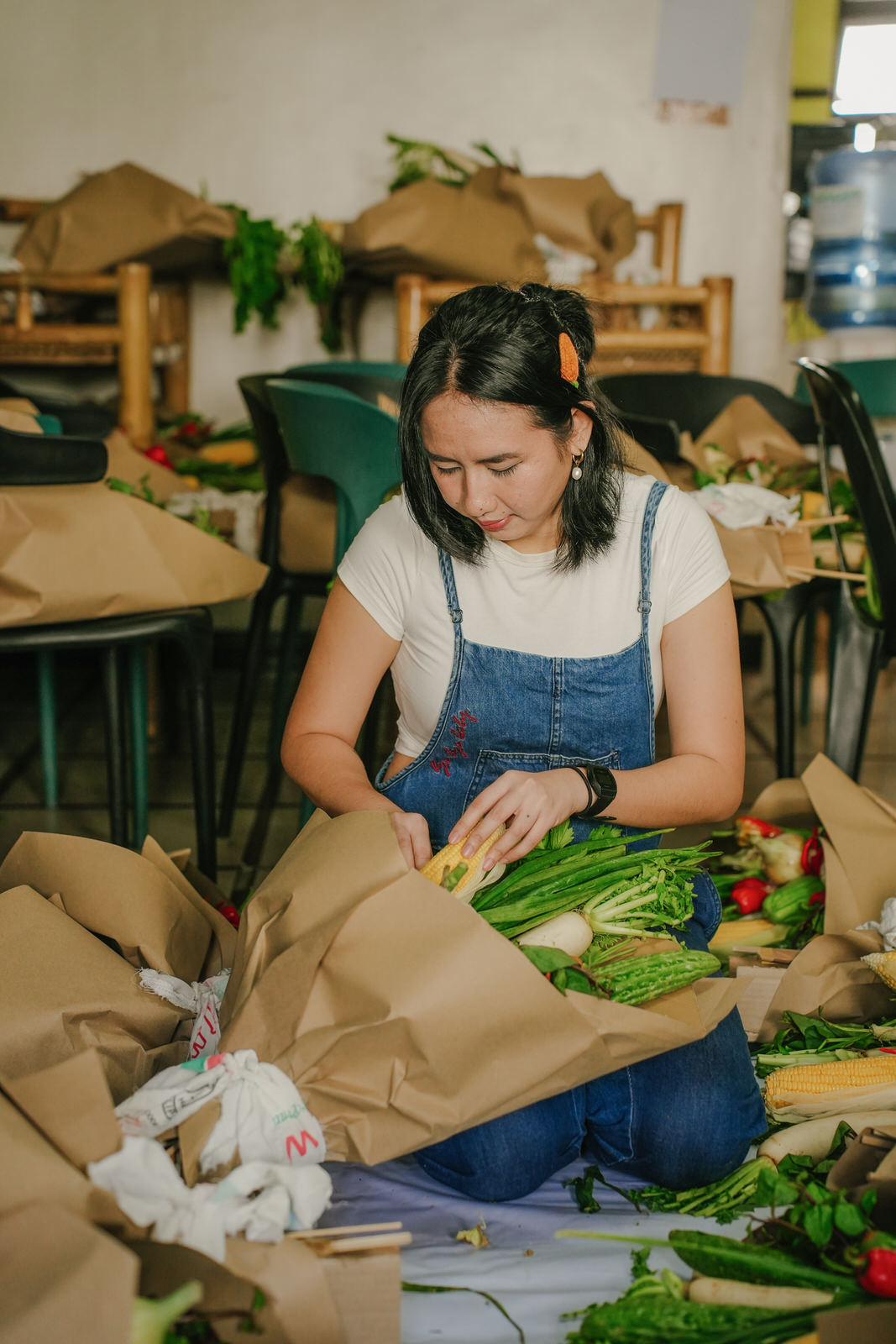
Much has been said and publicized about the community pantry movement, with some of the most recognizable personalities either expressing support for or villainizing the University of the Philippines Diliman alum. She was witness to allegations made that she’s a member of New People’s Army (NPA) and even being likened to Satan all over the news. She even received threats for her safety.
Like two sides of a coin, her gradual rise to social media popularity warranted both supporters and haters, with the latter primarily consisting of trolls. For a time, Patreng explains that the cynicism started getting to her head. “When people start to continuously make up these things about you, sometimes you start to believe them.”
“Sobrang affected ako noon, kasi ni re-red-tag ako so we had to pause the community pantry activities kahit marami ang nag do-donate kasi hindi na safe eh. (I got really affected back then because I was red-tagged. We had to pause the activities even though there were so many people who wanted to donate because it wasn’t safe anymore),” she adds. In hindsight, it’s unimaginable to think how such a well-meaning deed could launch a thousand criticisms, mostly coming from repressive public officials.
Imagine being scandalized by the act of readily extending aid to the needy. Patreng had to retreat into hiding in isolation for a good two months when the controversy arose. And if that wasn’t enough of an experience, she says people started messaging and harassing her friends, as well. “Na depress talaga ako. (I suffered through depression),” she remembers. “During that time, nag hire ako ng therapist para matulungan akong i-process lahat: ang media, ang red-tagging—lahat kasi nag bago sa buhay ko. (During the time, I sought help from a therapist to help me process everything: the media, the red tagging because they were all new to me).”
Patreng simmered in terror until she couldn’t anymore. “One day, sabi ko na lang sa sarili ko, tatakbo na ulit ako. Gusto ko na ulit mag jogging. Hindi na ako ‘to. (One day, I decided that I would go back to jogging. I had to do something to make me feel like me again),” she shares, alluding to how staying locked up has further damaged her mental health. Before her resurgent mid-day run, however, she felt the need to phone her loved ones. “Nagpaalam ako sa pamilya ko. Sabi ko, ‘Kung mawala man ako sa mundo, ok na ‘ko kasi lahat ng ginagawa ko ay gusto ko. Kung may mangyari man sa akin, kahit anong gawin nila sa akin, maniwala kayo na ang huling hininga ko ay hawak ko pa rin.’ (I bid farewell to my family. I told them that if ever I disappear, I’m ready and fully accept it because I know that all that I was doing I was passionate about. If ever that happens, whatever it is, I’d like for you to believe that I have control over my last breath).”
Predictably so, the majority of the hawk-eyed public had her back. “Noong ni let go ko na ang fear, ‘yung mga tao na nag de-defend sa akin. Noong lumabas na ulit ako, natuwa ako kasi kinakamusta ako ng mga tricycle driver at mga tindera. May neighbor din akong nag message, “Hello! I walk my dog every day. Pwede ka namin samahan sa pantry.” Pati online, pag may mga allegations, kahit di ko kilala, dini-defend na rin ako. (When I decided to let go of the fear, the people who supported me were the ones who were defending me already. When I started going out, the tricycle drivers and sellers in the area would check up on me. I had a neighbor who messaged me, “Hello! I walk my dog every day. We can accompany you at the pantry.” Even online, there were people, who I didn’t even know, defending me against allegations).”
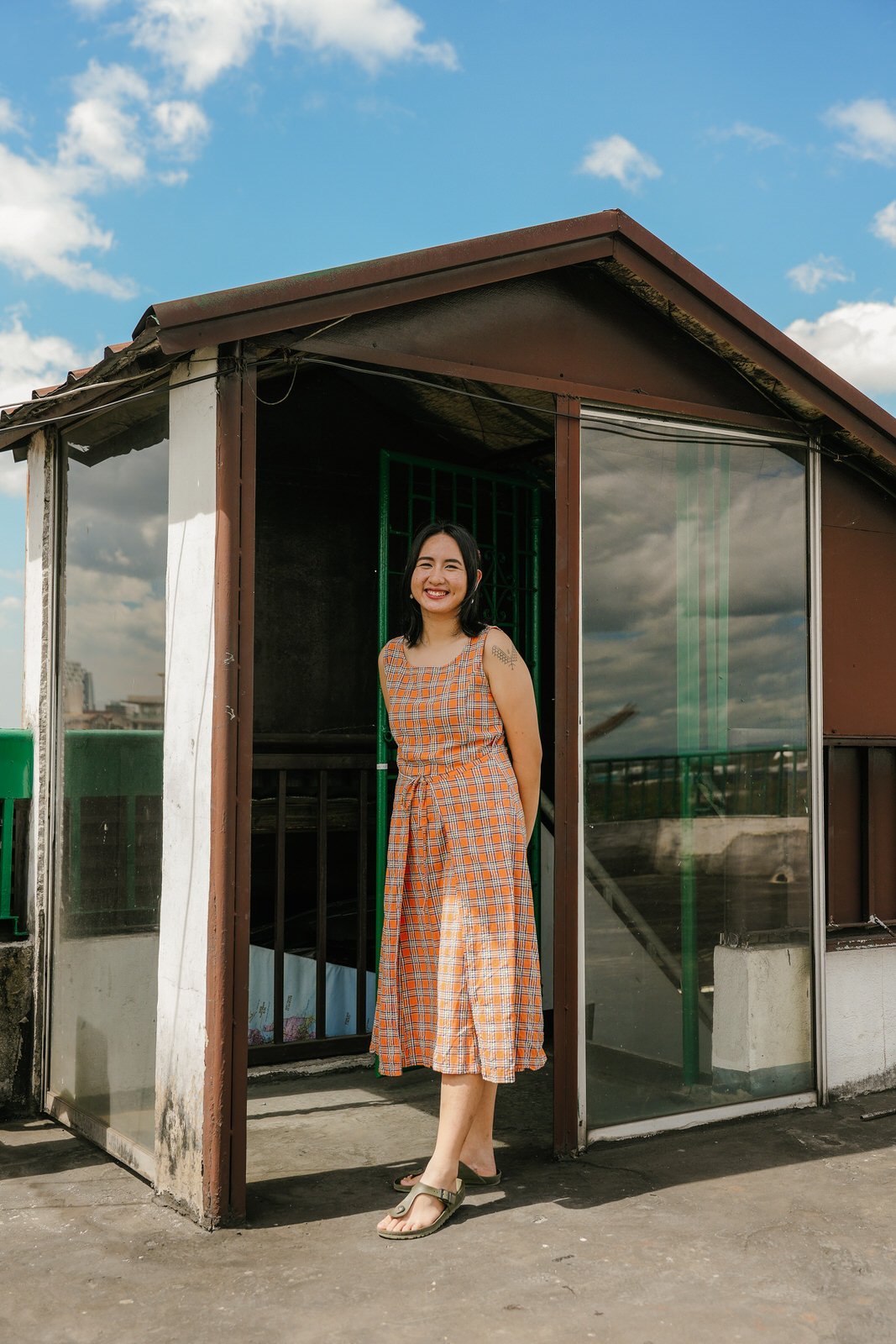
Patreng reveals that it was in that era of her life where she started becoming the most truthful to herself. There is an unexchangeable premium in honesty, Patreng claims. A trait that’s earned her not only her influence, but also a lengthy index of accolades. Among them, being a The Outstanding Women in Nation’s Service (TOWNS) award. She then nervously mentions the likes of broadcast journalist Ces Drilon and the first Filipina forensic pathologist Dr. Raquel Del Rosario-Fortun as part of the institution’s screeners with the very first question being, “Why do you deserve to be a TOWNS awardee?”
Leading up to the interview, Patreng says she didn’t originally think she merited the award but remembered the many others who went out of their way to organize community pantries of their own. “‘Yung mga nag organize ng pantry, deserve nila lahat-lahat ng recognition kasi ang ginawa nila ay more than enough sa panahon na walang-wala tayo. (Everyone who has ever organized a pantry deserved recognition because what they did was more than enough at a time when we’re all depleted).” Patreng punctuates her argument by concluding that her award is a symbol of collective effort. As if to say that it takes a village—in the most literal sense of the word—to build a community pantry, her TOWNS award is proof for every other folk, tribe, and barangay that’s ever set up their own food banks.
When she received the award, she chose to wear a red dress. “For someone who’s been heavily red-tagged, gusto ko i-reclaim ang kulay na red. (I wanted to reclaim the color red). Ang ganda kaya niyang kulay (It’s a beautiful color). It represents love and passion.”
Proceeding to chronicle an exchange she remembers with TOWNS judges, Patreng displays both tension and relief from her eyes. Someone asked me what’s next for me now that the pandemic is over. I simply replied that while there may not be lockdowns anymore, the prices of basic commodities are still so expensive. We’re still exporting; our farmers are not empowered.
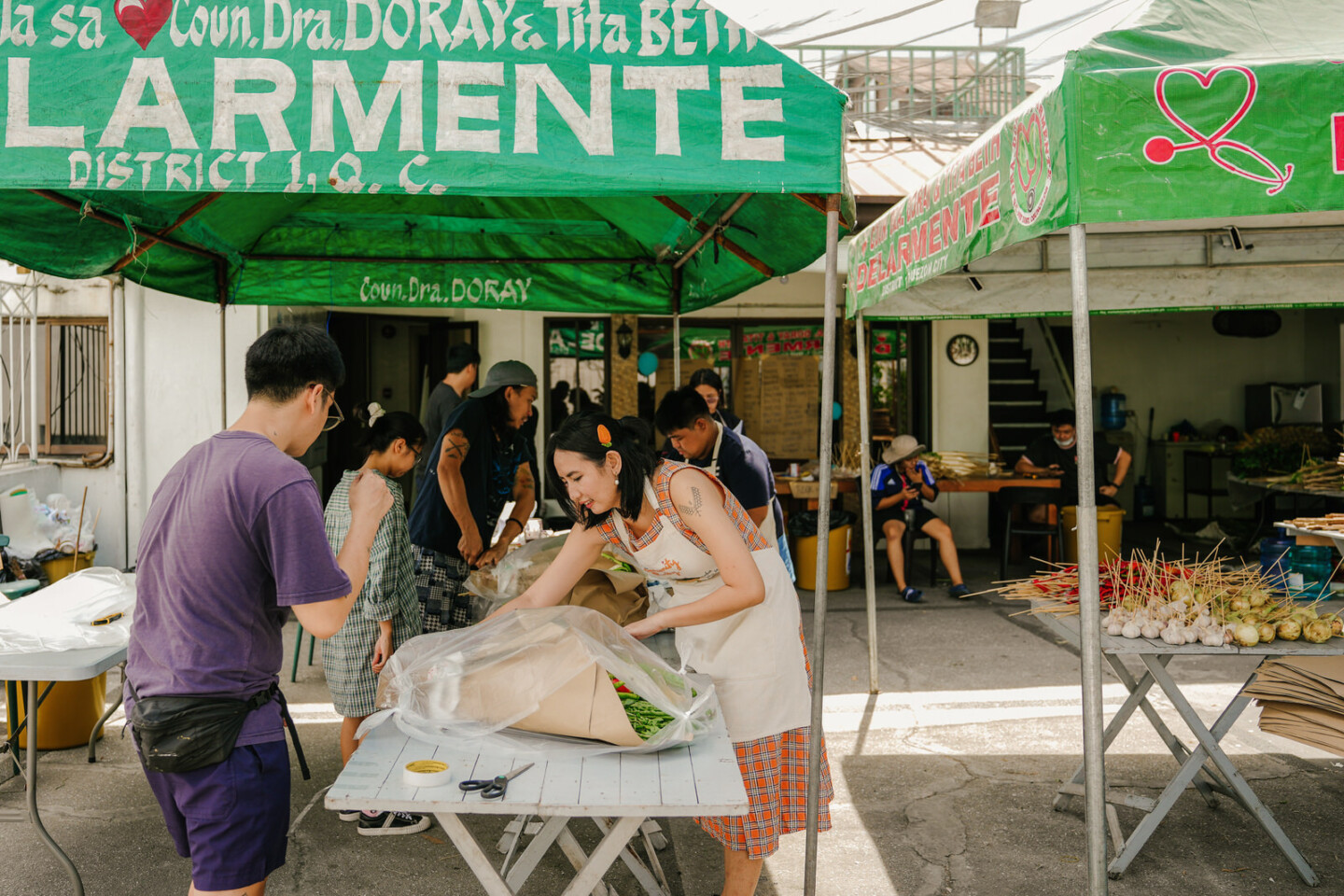
They then proceeded to ask her what her proof was, especially since she was being interviewed by judiciary justices — they were focused more on technicalities, data, and sciences. She simply replied, “Wala po akong inaral pero noong bata po ako, gutom po kami. ‘Yung mama ko lagi pong nangungutang. Tapos habang tumatanda po ako, minsan nagugutom pa rin po kami. Noong pandemic, nagugutom pa rin ang mga tao. Ang alam ko lang po noong panahon na yun ay 4.14 million Filipinos ang walang trabaho. Nakikita ko sa news ‘yung mahahabang mga pila ng ayuda. (I don’t have any data with me, but when I was young, we were hungry. My mother would always borrow money. Growing up, we would still experience hunger. During the pandemic, people experienced hunger. During that time, 4.14 million Filipinos lost their jobs. There were long queues for financial aid).”
She further added, “‘Yun lang po ang alam ko sa numbers pero ayaw ko po maging numbers lang din ang mga tao. Dapat makuha natin ang deserve natin. (That’s all the numbers I have, but I also don’t want to treat people as mere numbers. We should receive what we deserve).
Fast forward to the present. On top of spearheading Community Pantry PH—which is now a registered non-governmental organization—she also functions as a food and safety consultant for the Quezon City government. But between the multiple roles Patreng performs, she is evidently a dreamer first. She dreams of accessible education and healthcare, safe and open spaces for children to play in, and working conditions that allow families and friends to get together more regularly. Sans the oppressive capitalistic tendencies we’re all forced to espouse, Patreng gleams over the subject of what it could mean to actually appreciate life for what it is.
She believes that if people had genuine appreciation for life, the world will be a better place. If one appreciates life, we will learn to prioritize basic and simple needs, not profit. “Kung hindi ka advocate ng life, disposable lang talaga ang tao para sayo. (If you are not an advocate of life, you regard people as disposable),” she adds.
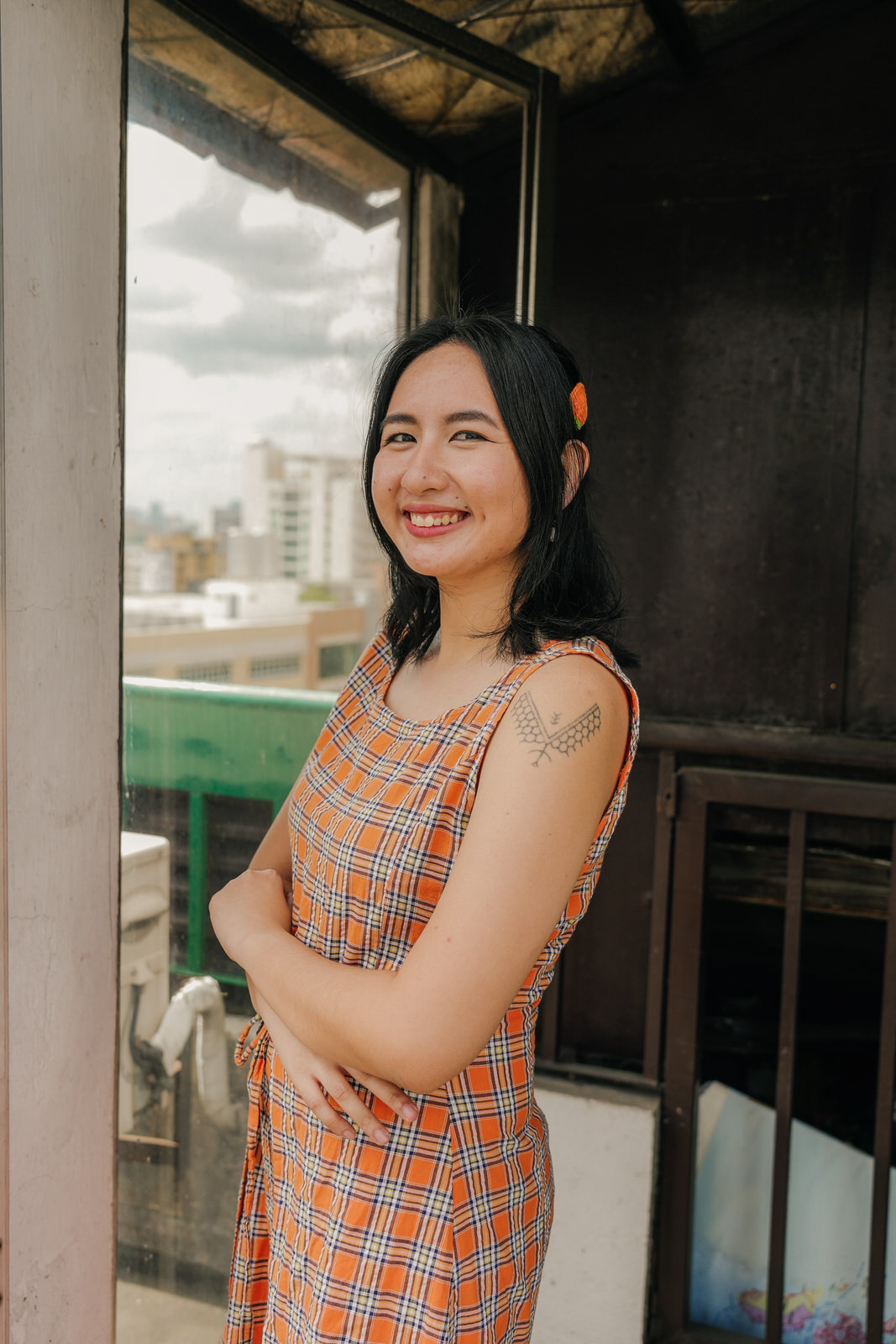
Finally, when asked what she’s proud of the most after all she’s achieved, Patreng taps into her inner child. “Tuwing babalikan ko ‘yung pantry, naiisip ko na sana may pantry din noong bata ako. Sasabihin ko talaga sa younger me na, “Uy alam mo may lugar na para sa atin. Pwede ka nang kumuha ng pagkain na hindi nangungutang o nahihiya. (Whenever I go back to the pantry, I always hoped that there was a community pantry when I was a child too. I want to tell my younger self that there’s a place for people like me where I can get food without having to borrow money and being ashamed).”
CREDITS
WRITER Bjorn Tabanera
EDITOR Tricia Quintero
PHOTOGRAPHER Zaldine Alvaro
SHOOT DETAILS Patreng was photographed on two separate days.
SUPPORT PURVEYR
If you like this story and would love to read more like it, we hope you can support us for as low as ₱100. This will help us continue what we do and feature more stories of creative Filipinos. You can subscribe to the fund or send us a tip.

